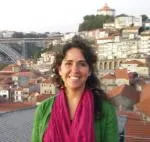
The Spanish Revolution & the Internet: From free culture to meta-politics
Mayo Fuster Morell, Berkman Center Fellow
Tuesday, November 22, 12:30 pm
Berkman Center, 23 Everett Street, second floor
Identica & Twitter: #occupyresearch
From Mayo:
In the context of multiple crises – ecological, political, financial and geopolitical restructuring – there are emerging forms of social cooperation.
In the Spanish case, we have seen some of the largest demonstrations since the country made its transition to democracy in the 70s with massive occupations of public squares, attempts to prevent parliaments’ functioning and citizen assemblies of thousands of people taking place in spring and autumn 2011. Large mobilizations are also taking place in other countries (such as Arab countries, Iceland, Greece, and more recently the United States). In the Spanish case, the Free Culture and Digital Commons Movement played an important role in the rising and shaping of the mobilization. The campaign against "Sinde Law" (on restrictive Internet regulation) in December 2010 and its afterworld meta-political derivation into "Don't vote them" campaign (meaning do not vote for the parties which approved Sinde law) are considered a starting point and one of the trajectories that most contributed to the generation of the "Indignate"/15th of May mobilization cycle for a "True Democracy Now". Additionally, the Free Culture and Digital Commons Movement has influenced the organizational logic of the "Indignate" mobilization (particularly in terms of new technologies usage for the collective achievement of common goals); however, in turn, the "Indignate" mobilization has also stressed a split between two sectors in the Free Culture and Digital Commons Movement itself (the performative one focusing on building commons keeping a political ambivalence and the campaigning sector aiming to mobilize citizens and intervene in the institutional politics arena).
In sum, Mayo Fuster Morell will first present the role of the Free Culture and Digital Commons Movement in the genealogy of the "Indignate" Movement in Spanish State. Then, she will analyze the commonalities and differences between both emerging forms of social cooperation (contrasting "digital commons" initiatives such as Wikipedia and "society commons" initiatives such as Square Occupations) that together suggest a shift to a more active role of civic society in the network society.
The presentation will be based on the results of previous/ongoing qualitative and quantitative research on the Free Culture and Digital Commons Movement and the "Indignate" Movement, and develop a political analysis.
About Mayo
Mayo Fuster Morell has developed research in the field of the Internet and politics; social movements (Global Justice Movement, Free Culture Movement and recent mobilization wave of "indignated" in Spain); online communities; common-base peer production; and public policies. She specializes in online methods and action-participation research.
Mayo recently concluded her PhD thesis (Title: Governance of online creation communities. Provision of infrastructure for the building of digital commons) at the European University Institute in Florence (2006-2010) under the supervision of Professor Donatella della Porta. She analyzed models of governance of common-based peer production and the relationship between governance, participation size and collaboration complexity. She combined a large N statistical analysis and case study comparisons (World Social Forum, Flickr, Wikihow and Wikipedia). More..
Links
You might also like
- communityHow to Make Sense of Trump's TikTok Deal
- communityWhat To Know About Algorithmic Pricing
